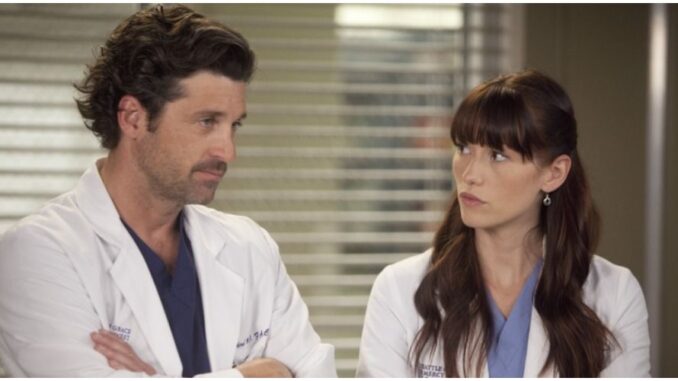
The Quiet Roar: Unearthing the Most Underrated Sibling Connection in Grey's Anatomy History
In the sprawling, often melodramatic, landscape of Grey Sloan Memorial Hospital, sibling connections form the very bedrock of many characters' identities and most compelling storylines. From the tumultuous, interwoven lives of the Grey-Shepherd-Pierce trio to the intense, almost telepathic bond between Derek and Amelia, Grey's Anatomy has never shied away from exploring the profound impact of familial ties. Yet, amidst the grand pronouncements of sisterhood and the high-stakes drama of shared trauma, one sibling relationship often fades into the periphery, its quiet depth and formative power criminally underrated: the complex, often fraught, but ultimately loving bond between George O'Malley and his brother, Ronny O'Malley.
To understand the significance of George and Ronny, one must first recall George O'Malley himself – the awkward, earnest, sweet-natured intern who constantly stumbled into his own insecurities. George, affectionately known as "007" for his early surgical failures, was a man perpetually trying to find his footing, both professionally and personally. Enter Ronny, his older brother, a character seen only in a handful of episodes but whose presence loomed large over George's self-perception. Ronny represented everything George wasn't: boisterous, traditionally masculine, confident in his place in the O'Malley family and the world. He was the son who could hunt, fix things, and embody the rustic, no-nonsense values of their upbringing.
Their interactions were almost always laced with a delicate tension. Ronny, with his well-meaning but often clumsy attempts to "man up" his younger brother, would inadvertently highlight George's perceived weaknesses. Whether it was teasing him about his medical aspirations, pushing him to go hunting, or simply embodying the kind of man their father expected, Ronny was a constant, if unintentional, source of George's internal conflict. George loved his family deeply, but he chafed under the weight of their expectations, particularly those personified by Ronny. This dynamic was a profound mirror reflecting George's ongoing struggle for self-acceptance and his yearning to be seen and valued for who he was, not who his family wanted him to be.
Yet, beneath this veneer of friction lay an undeniable current of deep familial love and concern. Ronny’s prodding was never malicious; it stemmed from a genuine, if misguided, desire to see his brother thrive in the way he understood success. When their father faced his critical illness, the O'Malley family rallied, and Ronny, despite his gruff exterior, was a pillar of support, not just for his parents, but for George as well. He might have expressed it through teasing or a gruff shoulder pat, but his care for George was palpable. He worried, he watched, and in his own way, he tried to protect his younger brother from the harsh realities of life, or at least, teach him how to face them.
Crucially, this dynamic was formative for George's character arc. His interactions with Ronny and the rest of the O'Malley family were instrumental in George's eventual growth into a more confident, self-assured individual. It was through these struggles that George learned to define himself, to stand up for his choices (like marrying Callie or pursuing trauma surgery), and to carve out his own unique identity away from the shadow of family expectations. The quiet resilience George developed was, in part, a response to the push-and-pull with Ronny, a testament to the fact that even challenging sibling relationships can be crucibles for personal transformation.
So why is this connection so underrated? Perhaps it’s because Ronny’s screen time was limited, or because George’s more dramatic love triangles and his tragic, heroic death tended to overshadow the more subtle nuances of his family life. The O'Malley brothers didn’t have the high-stakes, life-or-death drama of a bomb in a body cavity, nor the grand pronouncements of a "twisted sister" bond. Their relationship was grounded in the mundane realities of family, a quiet hum of expectation, frustration, and unwavering love that felt achingly real. It wasn't flashy, but it was profoundly relatable, a mirror to countless real-life sibling dynamics where love is expressed through teasing, exasperation, and an underlying foundation of fierce loyalty.
In a show celebrated for its passionate romances and dramatic friendships, the O'Malley brothers offer a poignant reminder that not all significant bonds roar. Some whisper, some chafe, some push and pull, but their quiet, persistent influence shapes us nonetheless. George and Ronny’s connection, though brief in its on-screen portrayal, was a foundational stone in George O'Malley's journey, a testament to the quiet, complex, and deeply human heart of family that beats beneath the surgical scrubs and dramatic diagnoses of Grey's Anatomy. It is, without a doubt, the most underrated sibling connection in the show's rich history, deserving of far more recognition for its subtle power and profound impact.